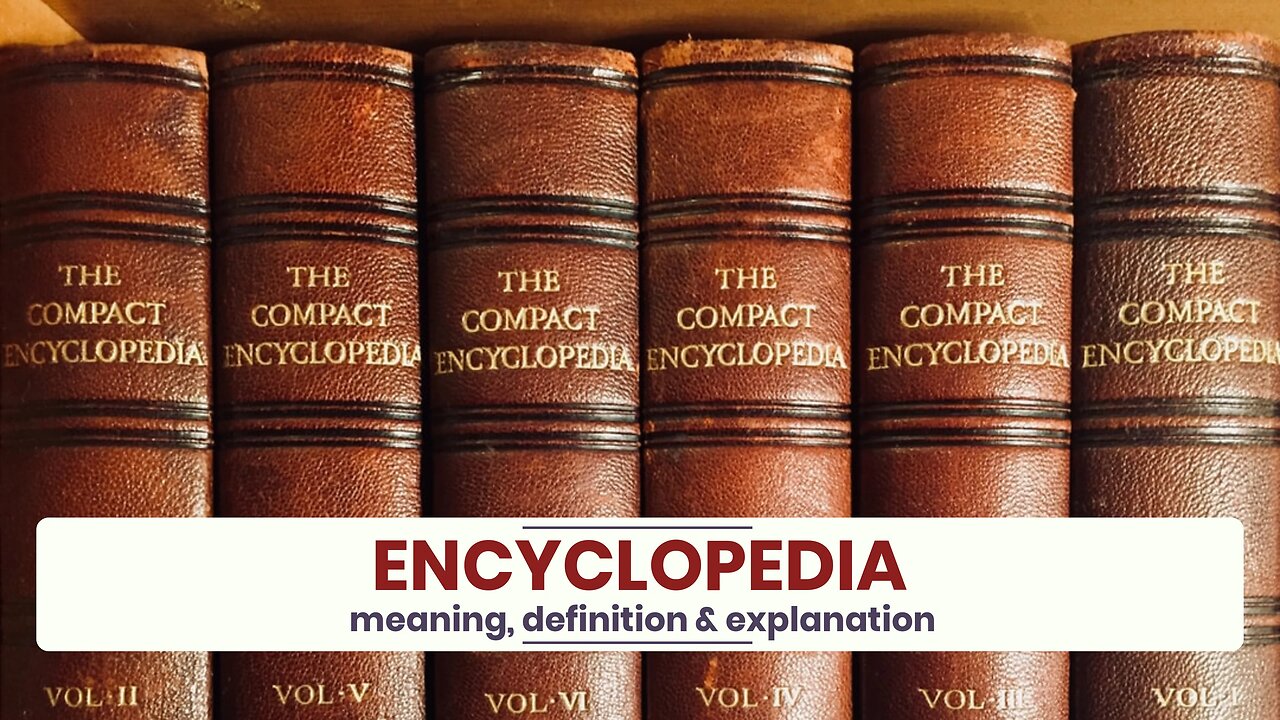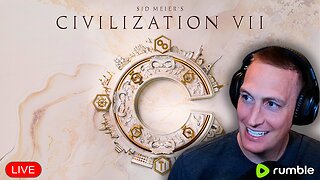Premium Only Content

What is ENCYCLOPEDIA?
✪✪✪✪✪
http://www.theaudiopedia.com
✪✪✪✪✪
What does ENCYCLOPEDIA mean? ENCYCLOPEDIA meaning - ENCYCLOPEDIA definition - ENCYCLOPEDIA explanation. What is the meaning of ENCYCLOPEDIA? What is the definition of ENCYCLOPEDIA? What does ENCYCLOPEDIA stand for? What is ENCYCLOPEDIA meaning? What is ENCYCLOPEDIA definition?
An encyclopedia or encyclopaedia (also spelled encyclopadia, see spelling differences) is a type of reference work or compendium holding a comprehensive summary of information from either all branches of knowledge or a particular branch of knowledge. Encyclopedias are divided into articles or entries, which are usually accessed alphabetically by article name. Encyclopedia entries are longer and more detailed than those in most dictionaries. Generally speaking, unlike dictionary entries, which focus on linguistic information about words, encyclopedia articles focus on factual information concerning the subject for which the article is named.
Encyclopedias have existed for around 2,000 years; the oldest still in existence, Naturalis Historia, was written starting in ca. AD 77 by Pliny the Elder and was not fully revised at the time of his death in AD 79. The modern encyclopedia evolved out of dictionaries around the 17th century. Historically, some encyclopedias were contained in one volume, whereas others, such as the Encyclopadia Britannica, the Enciclopedia Italiana (62 volumes, 56,000 pages) or the world's largest, Enciclopedia universal ilustrada europeo-americana (118 volumes, 105,000 pages), became huge multi-volume works. Some modern encyclopedias, such as Wikipedia, are electronic and often freely available.
The modern encyclopedia was developed from the dictionary in the 18th century. Historically, both encyclopedias and dictionaries have been researched and written by well-educated, well-informed content experts, but they are significantly different in structure. A dictionary is a linguistic work which primarily focuses on alphabetical listing of words and their definitions. Synonymous words and those related by the subject matter are to be found scattered around the dictionary, giving no obvious place for in-depth treatment. Thus, a dictionary typically provides limited information, analysis or background for the word defined. While it may offer a definition, it may leave the reader lacking in understanding the meaning, significance or limitations of a term, and how the term relates to a broader field of knowledge. An encyclopedia is, allegedly, not written in order to convince, although one of its goals is indeed to convince its reader about its own veracity. In the terms of Aristotle's Modes of persuasion, a dictionary should persuade the reader through logos (conveying only appropriate emotions); it will be expected to have a lack of pathos (it should not stir up irrelevant emotions), and to have little ethos except that of the dictionary itself.
To address those needs, an encyclopedia article is typically not limited to simple definitions, and is not limited to defining an individual word, but provides a more extensive meaning for a subject or discipline. In addition to defining and listing synonymous terms for the topic, the article is able to treat the topic's more extensive meaning in more depth and convey the most relevant accumulated knowledge on that subject. An encyclopedia article also often includes many maps and illustrations, as well as bibliography and statistics.
Some works entitled "dictionaries" are actually similar to encyclopedias, especially those concerned with a particular field (such as the Dictionary of the Middle Ages, the Dictionary of American Naval Fighting Ships, and Black's Law Dictionary). The Macquarie Dictionary, Australia's national dictionary, became an encyclopedic dictionary after its first edition in recognition of the use of proper nouns in common communication, and the words derived from such proper nouns.
-
 2:24
2:24
The Audiopedia
8 months agoWhat is AUSTERITY?
77 -
 1:45:00
1:45:00
RG_GerkClan
10 hours ago🔴LIVE Sunday Special - It's Time for World Domination - Civilization VII - Gerk Clan
49.1K17 -
 LIVE
LIVE
Major League Fishing
4 days agoLIVE Tackle Warehouse Invitationals, Stop 1, Day 3
174 watching -
 23:34
23:34
marcushouse
11 hours ago $14.43 earnedBREAKING: Starship Launch IMMINENT – But What’s This SURPRISE Flight 9 Plan?! 🚀🔥
98.8K9 -
 8:43
8:43
Film Threat
1 day agoTHE MONKEY | Film Threat Reviews
89.9K3 -
 15:55
15:55
TSPLY
1 day agoThe Media Is Very Afraid Of FBI Director Kash Patel
70.7K52 -
 6:57
6:57
Cooking with Gruel
1 day agoMake Cheese Great Again
59.5K19 -
 5:17
5:17
Mrgunsngear
1 day ago $9.77 earnedPresident Trump Has Appointed A New ATF Director
59.5K37 -
 48:17
48:17
Athlete & Artist Show
8 days ago $7.80 earnedS5E1: Chucky Announces First Kid, 4 Nations Face Off, and more!
102K4 -
 38:30
38:30
hickok45
12 hours agoSunday Shoot-a-Round # 269
98.1K19